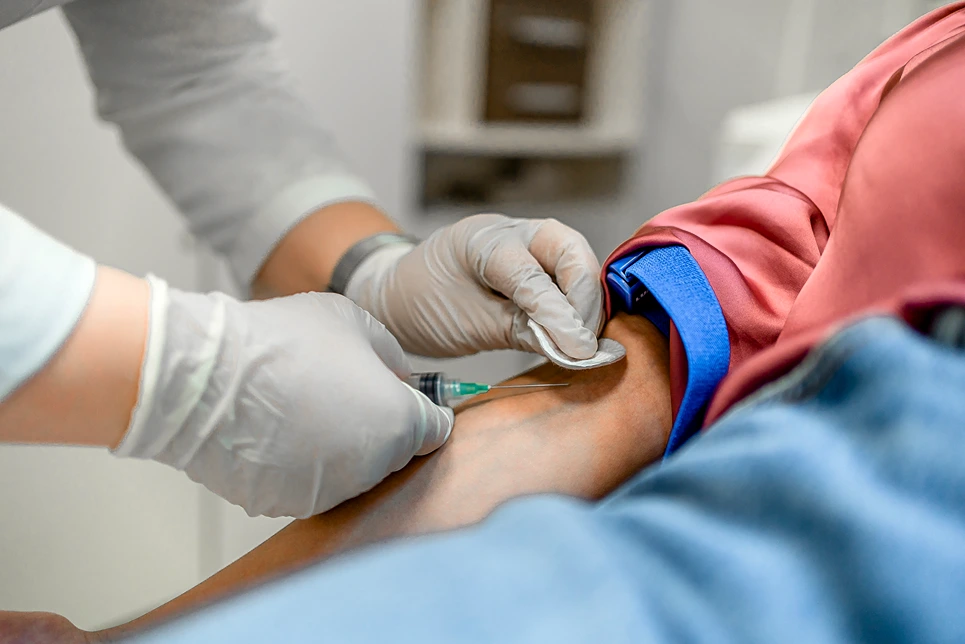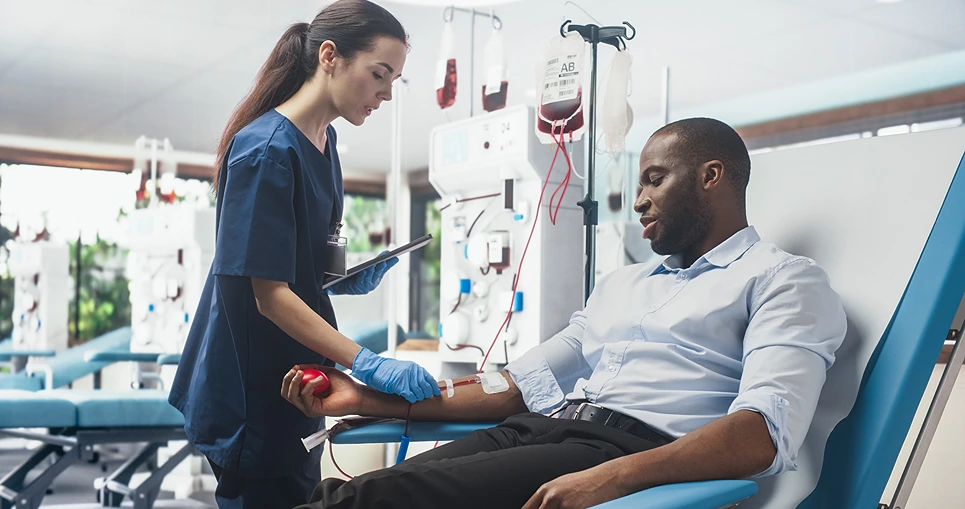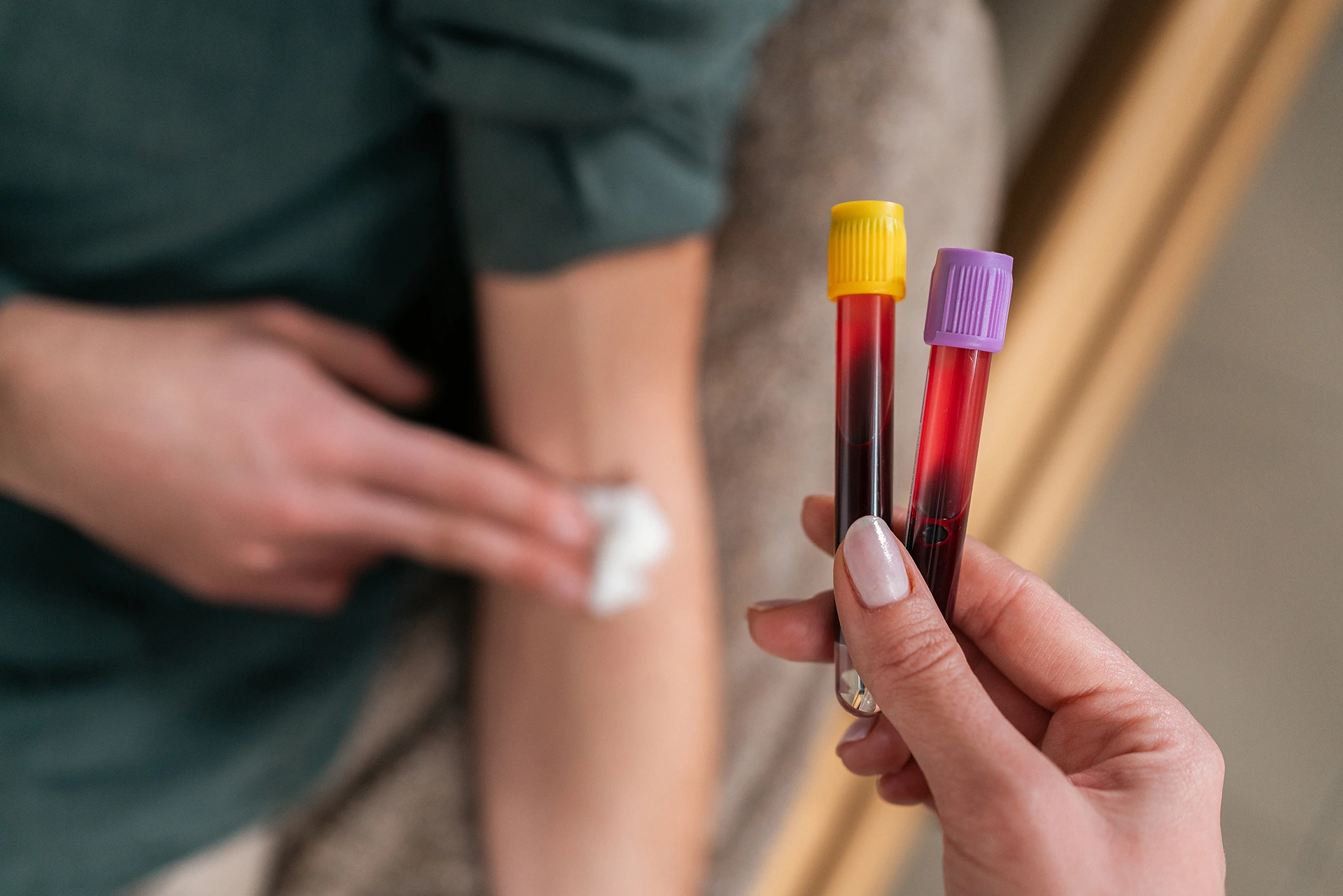Can donating blood help regulate hormones in testosterone therapy?
If you’re a man undergoing testosterone replacement therapy, donating blood could be a valuable part of managing your treatment.
Read on to learn why giving blood may benefit you and what you need to know.
Benefits of Donating Blood for Those on Testosterone Therapy

Can donating blood help regulate hormones in testosterone therapy?
Testosterone therapy can actually cause an increase in red blood cell production. While a healthy boost in red cells is normal, too many can thicken your blood and strain your heart. Donating blood removes some of these excess cells, helping to regulate red cell and hormone levels.
Maintaining the correct hemoglobin and hematocrit levels is important during testosterone therapy. If these get too elevated, your blood becomes thicker and doesn’t flow as easily. Donating a unit reduces the high hemoglobin and brings that hematocrit percentage back down to a safer range.
Plus, keeping iron levels under control is smart for testosterone management. Excess iron can disrupt testosterone production, so giving blood prevents a buildup.
With balanced hemoglobin, hematocrit, and iron, your hormone levels stay in that therapeutic sweet spot.
Does giving blood lower testosterone levels during therapy?
You might worry that donating a unit could tank your testosterone numbers, but that’s not typically the case. Any dip in total testosterone right after donating is just temporary.
Here’s why: A portion of your testosterone circulates while bound to proteins and red blood cells. Removing a unit of blood cells reduces this bound testosterone for a short time after donation.
However, your body quickly replaces the lost red cells and proteins. Within a few days, it rebuilds the bound testosterone levels too. So any drop is just a quick blip before restoring to your treatment’s therapeutic range.
As long as you time donations properly and follow guidelines, your free testosterone won’t take a long-lasting hit.
Eligibility for Blood Donation While on Testosterone Therapy
Can you donate blood while on testosterone therapy?
Most blood donation organizations allow donors who are undergoing testosterone replacement therapy prescribed by a doctor.
The key requirements are typically:
- Your testosterone must be bioidentical, matching what the body produces naturally
- It needs to be officially prescribed from a legitimate medical provider
- Your dosage information and blood levels have to meet their criteria
You may need to bring a doctor’s note explaining your eligibility. As long as your treatment is legitimate and your levels are acceptable, you should be able to donate without issue.
Some temporary deferral periods may apply though. For instance, if you’ve experienced conditions like polycythemia from high red cell counts, you’ll likely need to wait a set period before donating again.
Should I donate blood if I’m on testosterone replacement therapy?
For many men on prescribed testosterone, the benefits of donating outweigh any minor risks or inconveniences.
Giving blood can help manage side effects like:
- Sleep apnea from thickened blood
- Strain on the heart from high hematocrit levels
- Increased clotting risk if blood gets too viscous
Your doctor can evaluate if the advantages of donation fit your specific treatment plan. They’ll check your levels, dosage, and medical history to greenlight you for donating safely.
Does the Red Cross accept blood from testosterone therapy patients?

Yes, the American Red Cross does allow blood donation from men undergoing prescribed testosterone replacement therapy.
They have specific guidelines donors must follow, such as:
- Your doctor needs to certify in writing that the prescribed testosterone is safe for donation
- You must meet other eligibility criteria like minimum hemoglobin, hematocrit, and iron levels
- Be prepared to share details about your treatment, dosage, and most recent bloodwork.
The staff will likely ask questions to confirm your therapy is medically legitimate and won’t cause adverse impacts from your donated blood. As long as you meet their criteria, the Red Cross should clear you for donating.
Impact of Blood Donation on Testosterone Therapy
How does donating blood affect testosterone therapy?
When you donate blood, your hemoglobin and hematocrit levels drop temporarily until your body replaces the lost red blood cells. This decrease in red cell concentration can actually increase the absorption and delivery of your prescribed testosterone for a period after donating.
As a result, you may experience a slight spike or fluctuation in your hormone levels following a blood donation. Your doctor may recommend a minor dosage adjustment to keep you within your therapeutic target range until values stabilize again.
Testosterone therapy and donating blood – is it safe?
Yes, donating blood while undergoing stable, regulated testosterone replacement therapy is considered safe for most individuals when following standard protocols. There are no major health risks associated with giving blood if you are being treated with TRT.
As with any blood donation, taking proper precautions is important – staying well-hydrated, avoiding strenuous activity right after donating, and closely following any other instructions provided by the collection staff. Your health and safety are priorities.
Can you donate plasma if you take testosterone therapy?
Donating just plasma (the liquid portion of blood) is typically acceptable for most individuals on TRT, as it does not involve loss of red blood cells. During the plasma donation process, your red cells and platelets are returned to your body after separating out the plasma portion.
Some plasma-only donation centers may still have similar screening and deferral guidelines regarding TRT as whole blood donations. Be sure to disclose your therapy to staff during the screening.
When to Donate Blood During Testosterone Therapy
Do I need to donate blood during testosterone therapy?
Not everyone undergoing TRT necessarily needs to donate blood regularly.
However, there are certain factors that increase the likelihood of requiring therapeutic phlebotomy (blood removal) such as:
- Extremely high hematocrit or hemoglobin levels in bloodwork
- High estradiol (estrogen) levels indicating excessive aromatization
- Symptoms of hyperviscosity (thick blood) like headaches or dizziness
- History of polycythemia, thrombosis, or other blood clotting disorders
Discussing your complete blood count and hormone panel results with your doctor at regular intervals is important. They can assess if and how frequently you may need to donate based on your individual situation.
How often should you donate blood with testosterone therapy?
For most men on TRT with no major health complications, experts typically recommend donating whole blood every 8 to 16 weeks (or 3-6 times per year) to help regulate red cell mass and viscosity. This aligns with the general eligibility period for blood donors.
If your levels become extremely elevated, such as a hematocrit over 54%, your doctor may advise donating whole blood as frequently as every 56 days until values stabilize in the normal range again.
Planning Your Blood Donation

Where can I donate blood while on testosterone replacement therapy?
If you meet all eligibility criteria as a male undergoing regulated TRT, you can donate blood at most non-profit organizations and hospitals that collect community blood donations including:
- The American Red Cross
- Local donation centers run by organizations like Vitalant
- Hospital-based donor centers
- Community blood drives and mobile events
Before donating, be sure the center accepts donors on TRT by checking their policies or calling ahead. Your doctor may also be able to provide recommendations for TRT-friendly donation sites in your area.
Making an appointment is typically preferred over walking in, especially for your first donation after starting therapy.
On your donation day, have your testosterone prescription details and dosage information ready to provide staff. Following all pre-donation instructions like staying hydrated is strongly advised.
Conclusion
Donating blood while undergoing testosterone replacement therapy offers important benefits for regulating red cell levels and hormone values.
By understanding the impacts and properly timing your donations, you can help optimize your TRT while also making a valuable contribution to others in need.

